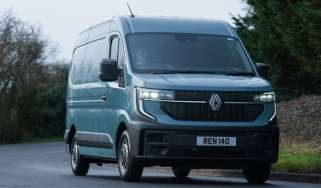Electric car running costs: are EVs cheaper to run?
Electric cars tend to be more expensive to buy than their petrol counterparts, but are they cheaper to run? We explain all
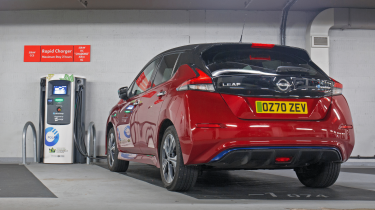
One of the best things about electric cars – besides the lack of emissions – is how cheap the running costs can be. There have been quite a few rumours over recent years relating to driving electric vehicles, such as reports stating that EVs are ‘completely free to run’, and even rumours about EVs requiring specific tyres – but is there any truth to them?
Ultimately, whether the total cost of ownership (TCO) is lower for an electric car than its petrol or diesel equivalent comes down to a multitude of factors. Here, we’ll crunch the numbers and find out how expensive – or inexpensive – owning an electric car can be.
In order to make everything clearer we have chosen to use the fully-electric MINI Cooper E and its petrol-powered sibling as examples, and we will compare all the costs between the two. Much of what we’re about to go through applies to almost every electric car on the market, but there may be exceptions. So, as always, be sure to do your research before committing to a purchase.
How much do electric cars cost?
As it stands, EVs tend to cost more than their combustion-powered counterparts. If we go to our MINI Cooper example, the fully-electric model’s purchase price starts from around £30,000, which is about £7,000 more than a comparable petrol model.
This price gap may not be so much of an issue for company car drivers – we’ll dive into that a bit later on – but private buyers will need to use their MINI Cooper E an awful lot in order to recoup the difference between it and the petrol car.
However, the price difference isn’t always so big; the Mercedes EQS is the German brand's electric alternative to the Mercedes S-Class. A Mercedes S 350 d L AMG Line Premium starts from £98,015, whereas an equivalent EQS 350 AMG Line Premium starts from £99,835 – a £1,820 difference. Taking into account the reduced emissions and the fact that this is only a 1.86 per cent increase in price, things start to look a little more appealing.
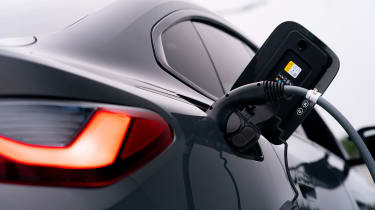
How much does it cost to charge an electric car?
We all know how expensive petrol can be, and rising prices are driving more people towards the idea of going electric. But is charging an electric car really any cheaper?
If we use our MINI Cooper E as an example, a full 0-100 per cent charge of its 40.7kWh battery will cost around £12 at a typical household rate of 30p per kWh. An EV-specific energy tariff will help to drive this cost down further, too.
If you’re away from home, using the public rapid charging infrastructure is more expensive. At the time of writing, the average cost to use a 100kW rapid charger is hovering between 49p and 79p per kWh. Taking the median of 64p per kWh, the same 0-100 per cent top-up of the MINI Cooper E’s 40.7kWh battery will cost around £26. This is more than double the cost of charging at home.
With this in mind, we can work out how much it costs to drive the MINI Cooper E per mile. With its WLTP combined range of 188 miles, it’ll cost you 6.4p per mile if charging at home and 14p per mile if you exclusively use public rapid chargers.
Next, let’s calculate how much it’d cost to fill up the regular MINI Cooper with petrol. The MINI Cooper has a 44-litre tank, and to fill the tank at an average petrol cost of £1.45 per litre will set you back by around £64 per fill-up.
In the WLTP combined tests, the petrol MINI Cooper is quoted as returning 47.9mpg, resulting in a total range of 463 miles. Therefore, running the petrol model will cost you 14p per mile – more expensive than charging the MINI Cooper E at home, but comparable to charging at a rapid charger.
It’s worth considering that just like combustion cars, some electric cars are more efficient than others – the MINI Cooper E is far from the most efficient EV on sale. You’re also unlikely to match the same figures quoted by WLTP, meaning both the petrol and electric models will likely be more expensive to run than you see here.
Regardless, this exercise highlights the importance of weighing up your options and also recognising that while charging at home is certainly very cheap, doing so at a public charger can be just as expensive as running a petrol car.
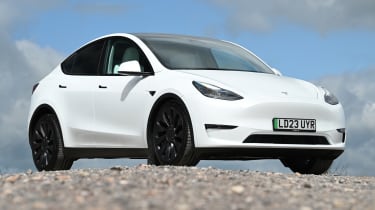
How much does it cost to insure an electric car?
There are many ways to save cash when buying an electric car, but car insurance, unfortunately, is not one of them. The complexity of lithium-ion batteries means that they are expensive to replace and therefore insurance premiums reflect this.
To put it into context, we have used insurance groups to showcase how potential insurers will view different cars. Insurance groups rank vehicles based on the risk they pose to insurers, with group 1 representing the lowest risk and group 50 the highest. Cars in higher insurance groups (closer to 50) are more expensive to insure because they are deemed riskier.
This increased risk is due to factors like the vehicle's original value, repair costs, and performance. The higher the group number, the greater the potential cost to the insurer, which translates to higher premiums for you. So, when choosing a new car, opting for one in a lower insurance group can save you money on insurance.
A lot of the time insuring electric cars is more expensive than combustion cars. An example of this is the Volvo EX40, which sits between insurance groups 33-40. In contrast the combustion alternative, the Volvo XC40, is in groups 22-26. If you think that’s bad, bag yourself a shiny new Mercedes EQE or EQS saloon, and you’ll have yourself a car that sits in group 50 – the highest there is. Even the Tesla Model Y – the world's best-selling electric car – straddles groups 46-50.
If we return to our pair of MINIs as examples, even though the petrol Cooper C Classic sits in the higher insurance group 21, it will still be cheaper to insure than the electric Cooper E Classic which sits in the lower group 20 due to increased risk of higher costs relating to the batteries and electrics. It’s also worth noting that insurance groups are not the be-all and end-all, only a guide, and an individual's circumstances and the specification of particular cars still play a bigger role in actual premiums
To make things a bit clearer, we thought we’d get an insurance quote for each car using AA as the insurance provider, basing each quote on a 42-year-old teacher living in Banbury, Oxfordshire with 3 points on their licence. For the petrol MINI Cooper, we were quoted £1,354.30 for a year of comprehensive cover, whereas the electric MINI Cooper E was quoted a higher £1,483.72.
We have also run quotes on both the Volvo EX40 and XC40 due to the higher insurance groups, with the electric EX40 being quoted £1,777.28 annually and the XC40 coming in at £1,535.47. If you think that’s bad, we also entered the details for the Tesla and both the Mercedes EQE and EQS. The insurer came back and told us they couldn’t cover the EQS and the Model Y, but they could cover the EQE, which came out as a whopping £3,550.47 a year.
On that account, it’s worth considering whether an electric car will be financially viable for you – especially if you don’t have any kind of no claims bonus, or are a young/old driver suffering the consequences of higher premiums. A rule of thumb: get a quote before you buy.

How much does it cost to service an electric car?
Electric cars may seem complicated, but they actually feature fewer moving parts than their combustion counterparts. This, alongside how regenerative braking systems take the strain off the brakes, means EVs require much less maintenance than you might expect.
Does this result in any extra cash in your pocket, though? Well, if we take the petrol MINI Cooper and its electrified counterpart, MINI says a full service including an oil change, brake fluid, spark plugs, filters and safety inspection will cost you £722.30 for the petrol car. The MINI Cooper E doesn’t require as much, given that it doesn’t have an engine, so a full service is quoted at £306.47 – a saving of £415.83.
MINI only recommends a service to be carried out every two years (or 18,000 miles, whichever comes first), though, and we have been quoted for everything to be included, besides brakes and MOT. Most cars require servicing more regularly, typically once a year, so it is important to bear that in mind when looking at the purchase of a new car. Always ask for servicing quotes before committing to the purchase.
It’s also worth noting the Tesla Model Y doesn’t even have a set servicing schedule – the car will simply notify you whenever it requires maintenance. This is also the case for many other EVs, while some models unfortunately require as frequent maintenance as petrol models.
Do electric cars require different tyres?
While it’s not a requirement, it is recommended that you choose tyres rated for your specific model. This is due to electric car tyres having a different construction to reduce the rolling resistance, which in turn will help your car increase the efficiency of the motors.
Other benefits of these tyres include reduced road noise while on the move and longer life, since the harder construction of low rolling resistance doesn't tend to wear out as quickly. However, they do tend to cost more than a traditional tyre.
Electric cars as a company car
A great benefit of driving an electric car as a company user is the low company car tax rates. As it stands, all EVs fall into the lowest 2 per cent Benefit-in-Kind bracket until August 2025, at which point it is set to increase by 1 per cent each year until 2028.
Let’s go back to our example of the petrol and electric MINI Cooper. The petrol model emits 133g of CO2 per kilometre, which slots it into the 31 per cent Benefit-in-Kind bracket. As a result that will cost drivers in the 20 per cent income tax bracket a total of £1,415.15 per year – and £2,830.30 if you’re lucky enough to find yourself above the 40 per cent tax threshold.
Compare this with the MINI Cooper E, and electric cars begin to look a very appealing proposition indeed. Despite costing around £7,000 more to buy privately, the EV’s 2 per cent Benefit-in-Kind rating means company car drivers will be paying a comparatively low £119.78 – roughly 12 times less than the equivalent petrol model.
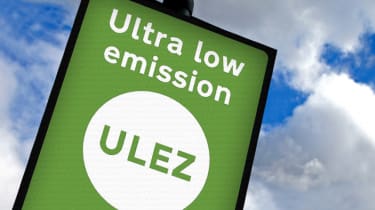
Electric car road tax
Buying an electric car has several other benefits to consider, other than lower fuel costs and cheap company car rates. Until August 2025, all EVs are exempt from Vehicle Excise Duty (VED), otherwise known as ‘road tax’ – even those that cost over £40,000 and would otherwise be liable for the ‘luxury vehicle surcharge’.
However, after the 1st of April 2025 drivers of EVs will have a £10 tax bill for the first year, then £190 a year from the second year onwards. Also, vehicles that are priced over £40,000 when new will be subject to the £410 ‘luxury vehicle surcharge’ meaning premium EV drivers will be faced with a £600 road tax bill.
This isn’t too much of a problem for the petrol MINI Cooper as, costing under £30,000, it will only be subject to the base £190 road tax rate – more than the electric version, but nowhere near enough to offset the cost of buying the EV.
If we use a BMW 4 Series Gran Coupe and an i4 as examples, things get a little more interesting. The petrol 4 Series price starts at £45,415 so is therefore subject to the £410 surcharge (at the time of writing), bringing the total yearly road tax figure to £600. Given many hybrid (and even petrol) family cars and SUVs surpass the £40,000 threshold, the surcharge slowly adds up over the first five years of ownership and may be a reason to consider going electric – even as a private buyer.
There are other tax benefits, too; all EVs can enter London’s Ultra-Low Emissions Zone (ULEZ) for free, and are also exempt from the Congestion Charge. With this in mind, running an EV in London could save you hundreds – or even thousands – of pounds per year compared to a petrol or diesel car. It's also worth mentioning that from the 25th December 2025 EVs will be liable to pay the London Congestion Charge, which currently stands at £15 per day.
Recommended
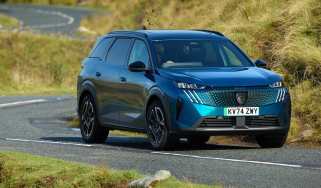
EV Deal of the Day: family-friendly Peugeot E-5008 for £261 per month

EV Deal of the Day: Dacia Spring is amazingly good value at £116 per month
Most Popular

EV Deal of the Day: family-friendly Peugeot E-5008 for £261 per month


